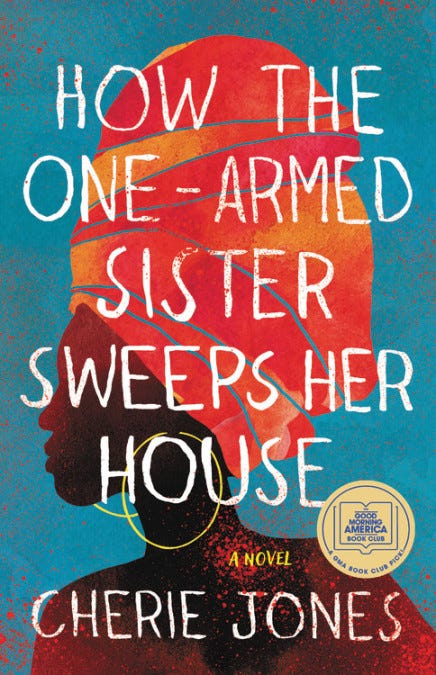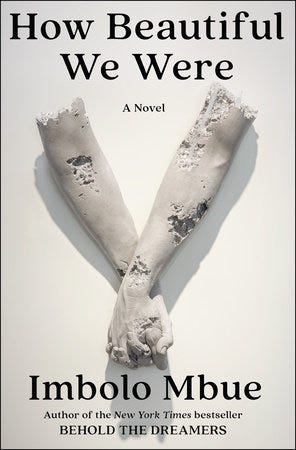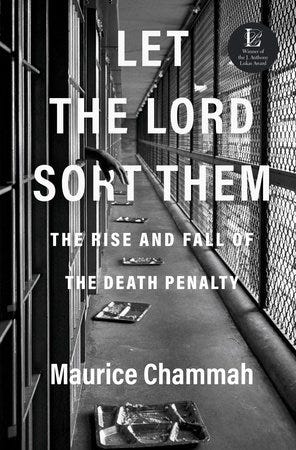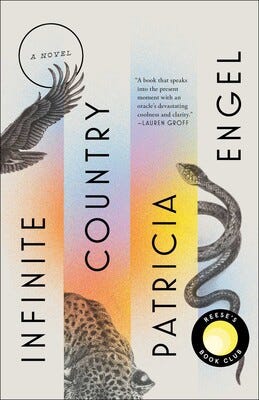Welcome to the March 2021 Reading Round-Up. Each month, I write about the books I read and rank them from worst to best. Here are some details on my system:
I rate the books on a scale of 1-10, with 1 being terrible and 10 being a book that blew me away. I rarely give below a 5, but I also rarely give a 10.
I’m a mood reader and pick what I want to read next based on how I’m feeling or what goals I’ve set for myself. There is no monthly theme. Sometimes I pick up books based on what I’m interested in at the moment, other times I’m deliberate in alternating between fiction and nonfiction, and other times I read whatever the library has gotten to me first.
I never give up on a book. Ever. Even if I should and even if I’m not enjoying the book. I keep going because I always have a hope that it will get better, even if it does not.
This month I read books, mostly fiction, set all over the world. In the United States, I traveled to California, Hawaii, Texas, and New Jersey. Globally, I visited Pakistan, Iraq, England, Colombia, Barbados, China, and a fictional country in Africa. Every one of these books was told through multiple perspectives and time periods and I know I learned so much more about these places than before I started.
The Bad Muslim Discount - Syed Masood (fiction, 357 pages)
The Bad Muslim Discount alternates between the perspectives of Azza and Anvar who meet as young adults in San Francisco. Anvar immigrated to the United States as a young boy from Pakistan and Azza is a refugee who flees Iraq to California with her father and abusive fiancé. When the book begins, Anvar and Azza live thousands of miles from each other, and readers get to view the oftentimes devastating paths that the two characters took to get to the present and meet one another. Once they do, the story began to sprawl and unravel. Explored with enough detail, each character could have had their own fascinating book. In an interview on the podcast Sarah’s Bookshelf Live, Masood talked about how Anvar had been the original focus of the story and that his editor later suggested the addition of the interwoven perspective of Azza. I think that the book would have benefited if this suggestion had not been taken and if the book had focused exclusively on Anvar’s voice. Anvar’s story was interesting, he exhibited nuanced emotions, and his story was told with humor. By adding in Azza’s story, the book spiraled into its most extreme logical end and thereby lost its crispness.
Rating: 6/10
The Divines - Ellie Eaton (fiction, 320 pages)
The Divines begins in a English all-girls boarding school right as tragedy strikes - a classmate falls from a window and it is unclear if she will live or if she dies. Although it might seem like this would be the premise of the book - was she pushed? did she jump? what happened leading up to this moment? - the book is less about the event itself and is more focused on the development of Josephine, the narrator and protagonist of the story. The story alternates between telling Josephine’s story from when she was in school and her life as a 30-something attempting to reconcile her present with her past. A nuanced look at class, self-image, and the struggles of girlhood, The Divines is an accomplished debut. My biggest complaint was the ending, when in the final pages the question of what happened to the girl who fell is revealed in what felt like an unsatisfactory attempt to cleanly give Josephine closure that she did not deserve.
Rating: 7/10
My Year Abroad - Chang-Rae Lee (fiction, 477 pages)
The jacket of this book advertises the story of Tiller and his adventures in Asia with a mysterious Chinese entrepreneur named Pong. This book is about so much more than this. Another book that alternates between time periods and locations, the story begins with Tiller in an unidentified town in the United States living with a woman named Val and her son who are both in the witness protection program. As the book progresses, the reader gets thrown back in time only by a few months to learn about Tiller’s connection to Pong and how he ended up where we meet him. Based on the description of the book on the jacket cover, I expected that the story would be about how Tiller ends up living a life adjacent to anonymity and how it is that he goes from being a young college kid to 19 going on 40. While this is addressed, it’s done so off-handedly and very briefly. If you blink or skim a page, you might miss it. I would have given this book a lower rating if the description of Tiller’s life and relationship with Val had not been so well done. Otherwise, the portions of the story that involved Pong felt disconnected and near the end, extremely fantastical that cast a shadow over the rest of the book.
Rating: 7.5/10
The Switch - Beth O’Leary (fiction, 336 pages)
For a lighter read, The Switch tells the delightful story of a granddaughter, Leena, and her grandmother, Eileen, who trade lives with the hopes of healing after Leena’s sister passes away and Eileen’s husband leaves her. Eileen moves to London to live in Leena’s shared flat while Leena moves to her grandmother’s home in rural Yorkshire. Along the way, they both make new friends, meet new people, and discover new parts of themselves while healing from their shared loss. This was a quick and satisfying read for anyone looking for something light yet smart.
Rating: 7.5/10
Sharks in the Time of Saviors - Kawai Strong Washburn (fiction, 384 pages)
This novel follows the members of the Flores family in Hawaii (and later California, Oregon, and Washington state) after middle-child Nainoa is seemingly blessed by the Hawaiian gods with a healing power that neither he nor his family knows how to handle and will ultimately break them all. As they grapple with poverty and growing older in a changing landscape, each family member is forced to reconcile their place in the world while faced with unspeakable tragedies. There is no denying that Strong Washburn is a talented writer and that this is an accomplished debut. Readers are provided with an unvarnished and unique view into Hawaii and its native culture that on its own makes picking up this book worthwhile. However, pretty much everything that could go wrong for each of the characters does, which left me feeling discomfited and sad as I finished the book.
Rating: 8/10

How the One Armed Woman Sweeps Her House - Cherie Jones (fiction, 278 pages)
How the One Armed Woman Sweeps Her House is a drama that takes place in Baxter Beach, Barbados centered around violence, class, and an absence of opportunity. I have never read a book set in Barbados and as a result I was inadvertently taught about a history of colonialism and its effects through a wide range of characters. The story begins on the night of a robbery turned murder that is disrupted by the robber’s wife going into labor. What happens next is told through the perspectives of everyone involved, even those involved only peripherally, and paints a scene of the seedy side of a resort town whose beaches mask the poverty, despair, and experienced violence of the people who live there. Because there were so many perspectives and stories to be told it felt like the end of the book was rushed to its conclusion all at once and could have benefited from even just 30 more pages to flesh out the details.
Rating: 8/10
How Beautiful We Were - Imbolo Mbue (fiction, 384 pages)
Mbue writes about the impacts of government colonialism and then corporate colonialism in a fictional African village in the 1980s after oil is discovered under the land. Although the setting is fictional - the general experience was too common and far reaching to be assigned to one real place, explained Mbue in an interview with the New York Times - the village and story feel strikingly realistic. After the activities of the oil refinery begin poisoning and killing the village’s children, village leaders try to no avail to get the corrupt national government to do something. It is only after a hostage taking of the American company’s representatives and a subsequent massacre by government soldiers of the villagers that the international community begins to pay attention. Even with the attention, however, in a story repeated in villages and countries around the world, nothing happens and eventually the environmental degradation becomes too great for the village and its traditional practices to be sustained. Another book told in multiple perspectives, Mbue uses a first person plural narrative to fill in the gaps of the story that individual characters might not be able to tell, which while useful for advancing the plot, sometimes lost specificity. None of the novel’s twists and turns feel particularly surprising, but that is not the fault of the author - indeed it might be the whole point - who is telling a story with shock value that has been dulled by the amount of times corruption and environmental damage has taken place and left ordinary people as collateral damage.
Rating: 8.5/10
Let The Lord Sort Them - Maurice Chammah (non-fiction, 354 pages)
This was an incredibly powerful and well-written book. Told through the legal arguments and the people making those arguments rather than from the inmates on death row themselves, this book painted a comprehensive picture of the death penalty in the United States. Although it is billed as chronicling the death penalty’s “rise and fall,” I’m not sure that the argument for “the fall” was particularly convincing or apparent, especially in Texas where the majority of this book is centered. Chammah is less focused on determining the justification for the death penalty in moral terms only, and instead spends his time making the case for why the death penalty should be abolished on legal grounds alone. Chammah makes a persuasive argument that there is no legal standard that can apply to who gets sentenced to death and who does not. As a result, the odds of getting a death sentence and then being killed by the state is akin to getting struck by lightening and depends on the varying factors of where one lives, what the population’s opinion towards the penalty is in that location, and too often, the race or gender of the defendant in question. This is a book that will make you think and think again, and taught me a whole lot about a subject I thought I already knew a lot about.
Rating: 9/10
Infinite Country - Patricia Engel (fiction, 191 pages)
Every word in this beautiful book matters. Despite its short length, this story is packed with so much in the way of themes, perspectives, and approaches. Every page moves this story forward in a masterful way. By interweaving the story of Talia’s escape from a girls’ prison in Colombia with the stories of her family members’, Engel granted her readers a window into one family’s struggles with love and striving for a better future amidst the harsh realities of the American immigration system. An absolutely stunning book that is sure to be one of the best books that I will read this year.
Rating: 10/10
If you like what I’ve written or want to see more reviews, recommendations, and round-ups about a wide range of novels, histories, and more, consider subscribing now by entering your email. It’s free and it’s about books. What’s not to like?








